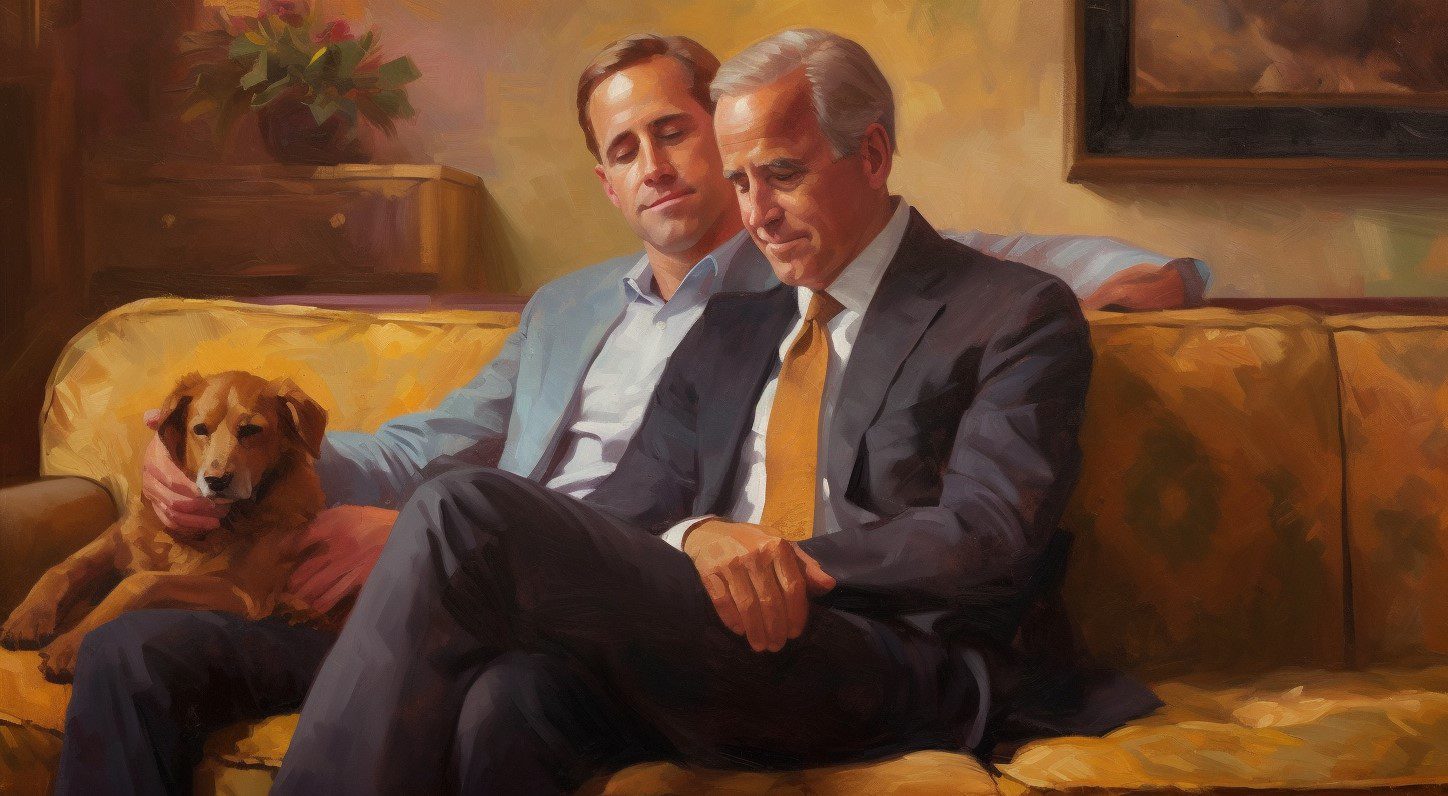
In a significant and controversial move, President Joe Biden has pardoned his son, Hunter Biden, who was previously convicted on federal gun charges and had pleaded guilty to tax evasion earlier this year.
This decision marks a notable deviation from the president’s earlier assurances that he would not intervene in his son’s legal proceedings. The move has garnered widespread national attention, rekindling debates around fairness, political influence, and the boundaries of executive power within the justice system.
Background of Legal Issues
In June 2024, Hunter Biden was convicted on three felony counts related to the purchase of a firearm in 2018, during which he falsely claimed he was not using drugs. The charges stemmed from an incident during a period of Hunter’s admitted substance abuse, when he purchased a firearm and signed a federal form falsely denying his drug use. This action led to his subsequent conviction.
Later, in September, Hunter Biden pleaded guilty to federal tax evasion charges, admitting that he failed to pay at least $1.4 million in taxes from 2016 to 2019. Sentencing for these offenses was scheduled for December 12 and December 16, respectively, reflecting two concurrent legal challenges that were to conclude within the same week. The tax evasion case underscored a sustained period of financial mismanagement, during which Hunter admitted to significant neglect of his tax obligations.
President’s Justification for the Pardon
President Biden justified his decision by asserting that his son was “selectively, and unfairly, prosecuted,” suggesting that the legal actions were politically motivated because of Hunter’s connection to the president. Biden argued that these charges represented a targeted effort to discredit his family due to their high-profile status rather than a genuine pursuit of justice.
Political Motivation and Fairness
The president emphasized that many similar cases involving issues like addiction and mental health are often resolved without criminal penalties, favoring treatment and rehabilitation over punitive measures. President Biden pointed out that in most instances, individuals facing similar accusations are encouraged to seek treatment, not subjected to severe legal repercussions. He stressed the need to recognize the humanity involved in cases of addiction and highlighted that his son should have received the same leniency as others in similar circumstances.
The president expressed hope that Americans would understand his decision, emphasizing his dual roles as both a father and the leader of the nation. He acknowledged the difficulty in balancing public duties with personal responsibilities, and how his parental love influenced his actions.
Implications and Reactions
This action has sparked significant debate about the impartiality of the justice system and the appropriate use of presidential pardon powers, especially in light of President Biden’s earlier commitment to staying uninvolved in his son’s legal issues. Many critics argue that the move sets a dangerous precedent regarding justice and preferential treatment for those with political connections.
The pardon nullifies both the gun and tax charges, effectively canceling the impending sentencing and sparing Hunter Biden from potential incarceration. This has led to questions about the implications for future administrations and whether the president’s actions represent an overreach of executive power.
Critics and Supporters Weigh In
Reactions to the decision have been polarized. Critics claim it undermines the credibility of the judicial system, suggesting that it demonstrates preferential treatment for the politically powerful. They argue that this action weakens public trust in the idea that the law applies equally to all individuals, regardless of their connections.
On the other hand, supporters of the pardon argue that it rectifies an unfair prosecution motivated by Hunter’s status as the president’s son. They contend that Hunter Biden’s struggles with addiction made him vulnerable to being used as a political tool, and that the charges exceeded what is typically pursued in similar situations. As the nation digests this decision, it highlights the intricate relationship between personal ties and public responsibilities, particularly for those in positions of significant power.
Broader Conversations on Presidential Pardons
The pardon has also sparked broader conversations regarding the use of presidential pardons and how best to prevent potential abuses of this authority. Some legal scholars have suggested that this case could lead to new calls for reforming the pardon process, advocating for greater transparency and oversight. The issue of balancing compassion with the consistent application of justice remains central to the debate, with President Biden’s decision walking a fine line between these two principles.
Executive Authority and Ethical Standards
The broader implications extend beyond Hunter Biden, touching on questions of executive authority and the ethical standards to which public officials are held. This situation underscores the challenges that arise when familial relationships intersect with governance. The personal nature of the decision has brought increased scrutiny on President Biden, revealing the inherent difficulties faced when deeply personal matters overlap with public duties.
For many Americans, this incident serves as a reminder of the human aspects behind political figures and the complexities they face in upholding fairness while navigating family loyalties. Regardless of individual opinions, the debate around this pardon will likely have enduring consequences for how the American public perceives the limits of presidential power and the delicate balance between justice and compassion.
